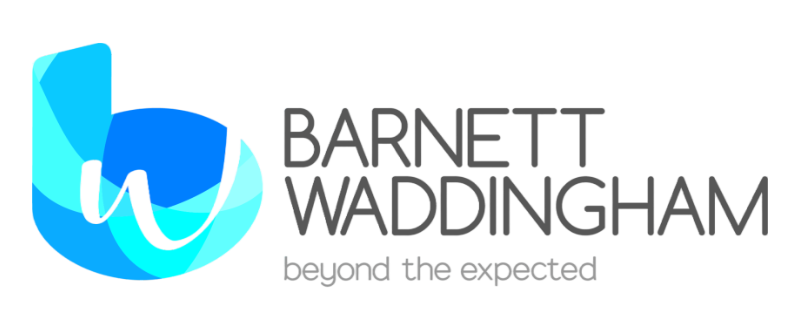The premier conference for life actuaries is here.
Join us for the Life Conference 2024 in Manchester from 14 to 16 October.
The annual event brings together professionals of all levels, from CEOs to new graduates, and thought leaders from across the world. And this year promises to be better than ever, with over 150 expert speakers exploring innovative solutions, best practices, and case studies on hot topics including AI and climate change.
The conference is the ideal platform to expand your professional network through multiple planned networking sessions over the three days. Plus, it’s the perfect opportunity to meet your professional development requirements for the year.
Watch feedback from Life Conference 2023 delegates
| Activity | Time | Details |
|---|---|---|
| Registration and exhibition open | 13:00 - 14:30 | |
| Welcome to IFoA Life Conference 2024 | 14:30 - 14:45 | |
| Plenary 1 | 14:45 - 15:45 | Growthbusters Read more |
The lifetime mortgage market is competitive and insurance company Insodex is experiencing reduced sales and market share. The marketing director is behind on their targets and needs the finance division to buy into their ambitious plans. But with a risky approach out of line with standard practice, the actuaries within the division may have some ethical questions to consider. This session features an unreleased professional skills video related to equity release: ‘Growthbusters’. Audience members will be asked to consider and discuss the ethical issues highlighted. Speaker: Alan Marshall, IFoA | ||
| Plenary 2 | 15:55 - 16:55 | A new dawn Read more |
An expert panel considers what we, the life insurance industry, can do to support the growth of the UK economy. The discussion will consider:
Speaker: Tom Kenny, Just and Mike Ambery, Standard Life | ||
| Free time | 17:00 - 18:30 | |
| Drinks reception (Kimpton Clock Tower) | 18:30 - 19:30 | Read more |
Venue: Kimpton Clock Tower | ||
| Dinner and entertainment (Kimpton Clock Tower) | 19:30 - 23:30 | Read more |
Venue: Kimpton Clock Tower Entertainment This isn’t just a quiz…! Over a few different rounds, you will compete against your rival actuaries to see who will win the ultimate plaudits and become the IFoA Quiz Champions! There will be:
All you need to do is turn up and sit at a table with the smartest people you know. One person will be in charge of filling out the answers using a device. It goes without saying – Googling is banned! This is not an exam – it’s fun trivia and silly in places. Get those brain cells fired up, and come and enjoy some variety-quiz entertainment! Keen to practice? Check out our weekly quiz podcast: quizcoconut.co.uk/podcast | ||
| Activity | Time | Details |
|---|---|---|
| Registration | 08:30 - 09:00 | |
| Plenary 3: Johnny Timpson | 09:00 - 10:00 | Reinforcing consumer protection and inclusion: leading on turning policy into practice Read more |
In late January this year, then Shadow Chancellor (now Chancellor) Rachel Reeves and City Minister Tulip Siddiq unveiled ‘Labour’s Plan for Financial Services’ and its 6 policy priorities. One of those priorities focused on improving people’s financial inclusion and resilience. The need for this is both stark and increasing:
The economic growth that the government is seeking and that underpins both its ambition and key missions can only be achieved if it draws on the skills, energy, and ambition of all citizens. That includes the millions who are financially excluded or at risk of becoming so. In this plenary, Johnny Timpson will discuss why now is the time for the insurance industry and profession to lead and work with stakeholders in:
In addition, Johnny will share several steps we can take to improve the financial awareness, inclusion, and resilience of the nation. Speaker: Johnny Timpson OBE | ||
| Workshop A1 | 10:10 - 10:55 | TBC |
| Workshop A2 | 10:10 - 10:55 | Navigating the Solvency II reforms: UK and EU perspectives Read more |
The UK is reforming Solvency II at the same time as EIOPA is implementing changes. This is leading to divergences in approach and capital requirements. We will discuss the:
This talk will bring together speakers from the UK and the Netherlands who are directly dealing with the impacts of Solvency II change. Speakers: Jeroen Gielen and Victor Vincent, KPMG Netherlands, Alisa Dolgova, KPMG and David Otudeko, Association of British Insurers | ||
| Workshop A3 | 10:10 - 10:55 | Equity release mortgages: the past, present, or future? Read more |
The presentation will focus on some of the challenges and opportunities facing the equity release market, focusing on:
Speakers: Raj Saundh, EY and IFoA ERM Working Party | ||
| Workshop A4 | 10:10 - 10:55 | Meeting trustee needs in the booming bulk annuity market Read more |
The bulk annuity market continues to thrive. But the trustees of defined benefit pension schemes find themselves grappling with a host of challenges as they look to insure their scheme. Insurers can gain an advantage in the market by understanding these issues well and developing solutions that work for trustees. In this session, we will take a detailed look across the spectrum of challenges faced by trustees, including:
For each challenge, we will examine its origin and distinguish between the short and long-term implications. We will then take an insurer’s perspective to shed light on how to work with trustees to adeptly address these issues. The presentation will be suitable for anyone interested in the bulk annuity space. Speakers: Rupal Mepani and Lara Desay, Hymans Robertson | ||
| Workshop A5 | 10:10 - 10:55 | Proxy models: trade-in your trade-off Read more |
Many life insurers use proxy models to speed up simulation-based risk and capital modelling. To date, an unpleasant trade-off for increased rapidity has usually been reduced confidence in the accuracy of the Solvency II SCR. This prompts considerable validation effort, which is both technically and operationally challenging. This talk will present the key ideas from 2 recent papers that pave the way to the end of this trade-off. Using straightforward examples, we will give practitioners important insights into measuring proxy errors in the SCR. Even better, we will show that under some circumstances practitioners can completely remove proxy errors and rapidly produce validated and accurate SCR values, without needing to balance trade-offs among these driving factors. This will allow proxy models to become a key risk management tool, rather than a potential ‘single point of failure’ within risk and capital models that attracts considerable regulatory focus. We will use basic mathematical notation and concepts, suitable for all actuaries involved in proxy modelling. Attendees will become acquainted with the key ideas from the papers, sufficient to understand applicability to their own modelling. Speakers: Dan Crispin, Rothesay and Paul Teggin, Polynya Consulting Actuaries Limited | ||
| Workshop A6 | 10:10 - 10:55 | Mitigating greenwashing and climate litigation risk in a changing world of regulatory, public, and private scrutiny Read more |
With ever-evolving public and corporate sentiment and scrutiny, and rapidly developing new regulation, greenwashing and climate litigation risk (CLR) pose significant risk to life insurers. Exposure can manifest in numerous ways, such as policy wordings, greenwashing in disclosures and product marketing, or asset devaluation. One key challenge to insurers’ approaches to mitigate greenwashing and CLR is their cross-cutting nature. Buy-in from multiple departments such as risk, investments, and underwriting are required. The FCA has released new anti-greenwashing rules on labelling insurance investment products. And the Climate Risk Financial Forum has published a seminal paper addressing how financial services companies should address CLR. Following these, this panel provides critical insights into key controls, mitigating actions, and practical strategies insurers should consider to ensure they are not caught off-guard. These risks may manifest into extensive losses on both the assets and liabilities side of the balance sheet and significant reputational risk if left unattended. Understanding the complexities of greenwashing is crucial to insurers maintaining trust and credibility with both the market and the regulators. We focus on specific areas such as:
Speakers: Namir Chowdhury, Kabari Bhattacharya, Richard Monks, EY and Laura Spanswick, Lloyd’s Banking Group | ||
| Workshop A7 | 10:10 - 10:55 | Understanding mortality trends in a post-pandemic world Read more |
The pandemic and the ongoing pressures on the healthcare system have significantly disrupted mortality trends. Where traditional actuarial methods typically extrapolated mortality trends into the future, solely relying on these approaches no longer works in a post-pandemic world. In this session we will explore:
Speakers: Stuart McDonald and Lydia Dutton, LCP | ||
| Workshop A8 | 10:10 - 10:55 | Lessons from the continent: innovative capital markets solutions for life and long term savings products Read more |
Ever since the UK introduced the pension freedoms in 2015, there have been widespread calls for product innovation. While the urgency was muted when inflation was negligible, the backdrop has dramatically changed in the post pandemic world. Leading pension providers are still reporting waves of outflows at retirement driven by a polarised attitude to risk, including the:
Fortunately we are not alone. We can learn lessons from our continental neighbours, who committed to solve these exact problems in recent years. They raised billions in new products, keeping policy holders in-house and bolstering revenues. In this session BNP Paribas, long-term partner of life insurers, will present the story of product innovation based on the example of Germany. It will show how it was the actuaries who grasped the opportunity and the solution. By demystifying instruments of capital protection, existing solutions will be brought to life in the context of the UK market. Speakers: Marcus Allen and Christian Eck, BNP Paribas | ||
| Workshop A9 | 10:10 - 10:55 | What’s left for financial reporting now IFRS 17 is live? Read more |
The first full year 2023 reporting under IFRS 17 in March 2024 marked the culmination of a 26-year journey to develop an insurance accounting standard. The Financial Reporting Group of the IFoA will:
Speakers: Anthony Coughlan, PwC, Kamran Foroughi, WTW and Ian Williams, Royal London Group Finance Director | ||
| Morning refreshments and exhibition | 10:55 - 11:40 | |
| Workshop B1 | 11:40 - 12:25 | With great power comes great responsibility: professionalism, regulation, and ethics for actuaries in data science Read more |
Could actuaries be responsible for the next big data privacy scandal? Is following the letter of the law enough when it comes to AI? Just because you can, does it mean you should? The information age has brought unparalleled opportunity for those with the right tools. Actuaries now have access to unprecedented modelling power and efficiency in their work through data science, machine learning, and AI. But tread with caution. Using real examples and case studies, the Data Science Community – Professionalism, Regulation and Ethics Working Party explores the ethical use of these tools. It talks through some of the regulatory and professional obligations actuaries should consider before embracing them. Speakers: Murray Lidgitt, Hymans Robertson and Hazel Davis, Sabre | ||
| Workshop B2 | 11:40 - 12:25 | The capital conundrum: rising rates and shrinking spreads Read more |
Recent macroeconomic volatility has forced the UK’s life insurers to reconsider their risk management practices and investment decisions. Rising rates have accelerated new business pipelines and caused insurers to rationalise the composition of their balance sheets. Tightening public credit spreads have led to reports of firms choosing to hold onto significant volumes of gilts. In our talk, we:
Relevant articles:
Speakers: Suanne Chong and James Gillespie, Natwest Markets | ||
| Workshop B3 | 11:40 - 12:25 | Cedant, broker, and reinsurer: 3 perspectives on a funded re transaction Read more |
Funded reinsurance is attracting more attention, particularly in the pension risk transfer market. This session aims to bring to life funded reinsurance using a real-world example, Project Abigail. Speakers from the cedant (Canada Life), the reinsurance broker (Guy Carpenter), and the reinsurer (Resolution Re) offer up diverse perspectives on these structures and their innate challenges. Project Abigail concerned Canada Life’s recapture of an internally reinsured c£5 billion portfolio of annuities, alongside their retender and placement in the external funded reinsurance market. Despite material challenges and a wide market participation in the tender, both work streams were completed back-to-back in just 93 business days. This talk is a case study of the project, including:
Speakers: Karl Chappell, Resolution Life, Sean Munday, Canada Life, and Jessica Elkin, Guy Carpenter | ||
| Workshop B4 | 11:40 - 12:25 | Phoenix Group 2023 Part VII transfer Read more |
In 2023, Phoenix Group carried out a major Part VII transfer to combine 4 of its life companies into one life company. Some 5 million policies and £140 billion of assets were transferred, covering several with-profits funds (including the large Standard Life with-profits fund), plus unit-linked and non-profit business. Several rationalisations, updates, and simplifications were carried out as part of the transfer, and the transfer enabled significant capital synergies to be recognised. The 2 speakers for this session will provide summaries and insights of the key aspects as follows: Richard Preston (Phoenix) was one of the senior project actuaries who worked on the transfer. Richard’s presentation will cover Phoenix’s rationale for the transfer and for its design, the all-important communications aspects, and the key challenges faced and overcome. John Jenkins (Milliman) was the Independent Expert (IE) for the transfer. John’s presentation will include the key IE considerations arising, the financial analyses carried out, some interesting features and aspects arising, and how policyholder objections were answered. Speakers: John Jenkins, Milliman and Richard Preston, The Phoenix Group | ||
| Workshop B5 | 11:40 - 12:25 | You’ve had time for procrastination, now it’s time for MA attestation Read more |
A key part of the PRA’s Solvency UK reforms of the matching adjustment (MA) is the introduction of MA attestation. Since the PRA published Consultation Paper 19/23 (CP19/23), firms have been tackling the design and implementation of their MA attestation solutions. In June 2024 the PRA’s expectations were finalised in Policy Statement 10/24 (PS10/24).
This talk is aimed at those interested in the impact of MA attestation on life insurers and who have a working understanding of the MA. Speakers: Andrew James and James Kay, PwC | ||
| Workshop B6 | 11:40 - 12:25 | Update from the CMI Read more |
This session will provide an overview of recent outputs from the CMI, with a focus on recent analyses by:
Speakers: Cobus Daneel, Chair of CMI Mortality Projections Committee, Chris Reynolds, Chair of CMI Assurances Committee, Jamie Funnell, Chair of CMI Annuities Committee and Stuart McDonald, Deputy Chair of CMI Executive Committee | ||
| Workshop B7 | Protection Health and Care | 11:40 - 12:25 | Serving the underserved: how well is the protection industry serving different customer groups? Read more |
Consumer Duty has put increased focus on how much value different customers get from financial products. But how well is the protection industry serving different customer groups? Who are the most underserved groups, and what can the industry do to help serve these groups better? Using consumer research commissioned by Pacific Life Re in the UK and Ireland, we analyse different customer characteristics such as ethnicity, sexuality, and gender. And we look at how well each group is served by the industry. We also look at some of the potential drivers for these differences. Using examples from other markets we’ll also explore ways to better serve these customers by changing products, distribution, and the customer journey. Speakers: Richard Purcell, Aaron Saldanha and Jen Taylor-Hill, Pacific Life Re Topic: Protection Health and Care | ||
| Workshop B8 | 11:40 - 12:25 | There is something we need to talk about: men’s mental health Read more |
3 quarters of registered suicides in the UK in 2022 were men. 1 in 8 men report experiencing symptoms of mental ill-health, compared to 1 in 5 women. Since the pandemic mental health has become more at the forefront of conversations. The NHS has 5 ways to mental health wellbeing which we will explore in a panel discussion with leaders. We’ll discuss the panelists’ mental health journey and how they try to achieve mental health wellbeing. The discussion will be hosted by Graham Griffin who is a Learning Business Partner at KPMG and a Mental Health England First Aid Instructor. Graham has been hosting a podcast about men’s mental health where he has discussed ‘leadership with mental health’ and ‘positive mental health culture’. Speakers: Graham Griffin, KPMG, Kalpana Shah, IFoA Immediate Past President, Masimba Zata, Moody’s, and Richard Galbraith | ||
| Workshop B9 | 11:40 - 12:25 | Global landscape for regulatory capital Read more |
This session will provide an overview of the global landscape around regulatory capital. It will focus on the latest pillar 1 developments under some key regimes and regulatory frameworks from a life insurance perspective. This is expected to include Solvency UK, Solvency II, North American regimes (for example Bermuda, US, Canada), Asia Pacific (for example Japan, China, Hong Kong), and Insurance Capital Standard. The session will consider:
Speakers: David Burton, Kenny Chong and Angela McShane | ||
| Lunch and exhibition | 12:25 - 13:35 | |
| IFoA town hall | 13:35 - 14:25 | IFoA town hall Read more |
Speaker: Kartina Tahir Thomson, IFoA President | ||
| Honorary Fellowship Award | 14:25 - 14:35 | |
| Plenary 4 | 14:35 - 15:35 | Climate Scorpion – the sting is in the tail Read more |
The IFoA report ‘Climate Scorpion’ shares the latest IFoA research collaboration with climate scientists. It explores the potential for extreme climate risks, their knock-on social effects, and actions we can take to manage them. In this session, we explore how the actuarial approach towards ruinous risks can be applied to climate change. We explore the key findings from the paper, namely:
Speakers: Sandy Trust, M&G and Lucy Saye, Deloitte | ||
| Afternoon refreshments and exhibition | 15:35 - 16:25 | |
| Workshop C1 | 16:25 - 17:10 | How to validate AI models – an actuarial perspective and optimising and automating controls: lessons from banking Read more |
Model validation will become increasingly important for insurers to undertake. There are indications from the PRA in the ‘Dear CEO Letter’ and ‘2023 Business Plan’ that life insurers should consider how model risk management proposals applying to the banking sector can apply to them. The government has also issued ‘AI regulatory principles’ and initial guidance on how these will be implemented by regulators. This presentation will aim to:
Speakers: Martin Hall and Diana Dobre, KPMG | ||
| Workshop C2 | 16:25 - 17:10 | Addressing the trillion-pound housing gap: UK insurers at the forefront Read more |
In the face of a monumental housing shortfall exceeding 4.3 million homes, the UK is grappling with a housing gap surpassing one trillion pounds. This requires urgent action for societal and economic stability. UK insurers, with assets over £2 trillion, including allocation to illiquid investments, emerge as key players in addressing this challenge. Through bulk purchase annuities (BPAs), insurers play a critical role in funding housing initiatives such as supporting affordable housing projects and build-to-rent developments. Aligned with ESG principles, these investments not only yield financial returns but also foster social impact. The talk aims to delve into various aspects of the housing gap issue, showcasing insights, potential solutions, and the significance of collaboration for addressing the crisis effectively. This presentation will explore:
Speakers: Chee Lim, Hymans Robertson and Ben Denton, Chief Executive, L&G | ||
| Workshop C3 | 16:25 - 17:10 | Reinsuring the sunset Read more |
Closed with-profits funds often have peak risks as they approach the sunset clause. This can be a particular challenge where the main fund is uncomfortable taking on this risk itself. Reinsurance has been used in these cases to manage this risk. It enables a more equitable distribution of surplus and eases the way into the merger with the main fund. Speakers: Russell Monro, Gallagher Re and John Jenkins, Milliman | ||
| Workshop C4 | 16:25 - 17:10 | Navigating M&A transactions post-IFRS 17 implementation Read more |
Navigating M&A transactions post IFRS 17 implementation presents both challenges and opportunities for the insurance industry. Post-IFRS 17, M&A transactions call for a deeper understanding of a target insurer’s financial position and risk profile requiring greater scrutiny of its insurance liabilities including CSM, risk adjustment, profit margin for run-off, in-force and new business. Careful consideration is required if the reporting base is different to IFRS requiring conversion adjustments particularly for IFRS 17. There are potential challenges in terms of:
The shift in the financial reporting due to IFRS 17 also offers opportunities for strategic acquisitions. Insurers with robust IFRS 17 reporting processes and strong systems and data capabilities may be more attractive targets. This session aims to go through key considerations in this evolving landscape where M&A professionals, insurers, and others must work together to adapt to the new reporting requirements post IFRS 17 environment. Speakers: Natalia Mirin, Kholeka Mdluli and Bhavin Bhatt, Grant Thornton | ||
| Workshop C5 | 16:25 - 17:10 | Chicken soup for the actuarial soul Read more |
In this session, we will talk through the stories from actuarial careers and teams – stories that are exciting, challenging, heart-warming, diverse, and simply inspirational. We will:
Speakers: Hana Drake, 4most and Jenny Ware, Aviva | ||
| Workshop C6 | 16:25 - 17:10 | The hidden dangers of electronic vapes: uncovering the health risks Read more |
There has been an increase in electronic vape use in recent times. Contrary to popular belief, vaping does carry health risks, though long-term studies are needed to clarify the extent. The latest data shows that 4.7 million adults in Great Britain used e-cigarettes in 2023 (9.1% of the population). Of these, 2.7 million (56%) are ex-smokers, 1.7 million (37%) are current smokers, and 320,000 are never smokers. The Tobacco and Vapes Bill is making its way through Parliament, which will ban the sale of disposable vapes. It will also introduce policy that creates a ‘smoke-free generation’, by raising the age of sale of tobacco from 18, by one year, every year, until no one can legally buy a tobacco product in the UK. What are the health consequences of electronic vape use? How much of an impact will the Tobacco and Vapes Bill make on both vape and cigarette smoking prevalence? And what are the demographic and socioeconomic implications? We will explore the impact on mortality and longevity and long-term health outcomes such as cardiovascular disease over time using stochastic cause of death modelling. Speakers: Nicky Draper and Chris Martin, Crystallise Ltd | ||
| Workshop C7 | 16:25 - 17:10 | Navigating the SEA: getting the most from solvent exit planning Read more |
The PRA’s consultation on solvent exit planning (CP2/24) proposes new requirements for insurers to identify triggers for considering closure, and to better prepare for what they need to do to secure an orderly exit from the market, in both stressed and non-stressed circumstances. Based on our market insights this interactive session will cover:
Speakers: Jignesh Mistry, PwC and Andrew Collins, LV | ||
| Workshop C8 | 16:25 - 17:10 | Future proofing the MA regime: the case for an MA sandbox Read more |
The UK economy has a productivity problem, a retirement affordability problem, and an acute need to finance climate solutions. A more agile regulatory regime could unlock the innovative investment needed to deliver growth, transition to a net zero economy, and achieve better outcomes for pensioners. Last autumn, the Prudential Regulation Authority (PRA) published proposals designed to enable broader and quicker investment by insurers in their matching adjustment portfolios. This is a pragmatic move in the right direction. However, we have identified assets that would qualify under legislation, but not under the detailed PRA rules. More generally, we need the regime to be agile enough to quickly respond to future funding needs. For example, to support the net zero transition where we do not know what new technologies will emerge, or how this funding might be structured. We have proposed the introduction of a ‘matching adjustment sandbox’ targeted at facilitating more flexible and innovative investments in annuity funds. The sandbox framework would allow insurers to safely investigate expanding the range of MA eligible assets. A mechanism such as the sandbox is a tool that regulators and industry could use to ensure the regime keeps pace with market developments. The PRA committed to investigating the proposal in its 2024 business plan and set up a subject expert group to discuss with industry. In this session we outline the details of the sandbox proposal, provide an update on discussions held to date, and invite wider discussion from attendees over the proposal. Speakers: Sarah O’Sullivan, The Phoenix Group | ||
| Workshop D1 | 17:20 - 18:05 | Equity release or mortgage loan: which better addresses the financial needs of aged people facing financial hardship? Read more |
In this session, we’ll explore financial solutions for individuals in later stages of life, where immediate liquidity is crucial while protecting valuable assets. Dive into:
These are significant subjects, presenting a formidable challenge in choosing between 2 options, involving questions such as:
Speakers: Muskan Vashisth and Chirag Kohli | ||
| Workshop D2 | 17:20 - 18:05 | Optimising the back book: (b)latent opportunity Read more |
An insurer’s ability to originate private assets has been considered a key driver for new bulk purchase annuity (BPA) competitiveness. It is a key focus of insurers aiming to deliver their assumed target portfolio. But constantly evolving markets can also generate massive relative value opportunities on a large proportion of the portfolio as it drifts from its efficient frontier. Cycling through these market opportunities generates continuous value and is a key means of managing the overall balance sheet. Insurers often consider the relative rewards of credit exposures, with well publicised events driving headlines across a range of key market participants. But structural opportunities in government bonds and cross-currency markets also come to the foreground of extracting value from insurers’ public portfolios. This session aims to:
Speakers: Holly Steward and Kyle Audley, The Phoenix Group | ||
| Workshop D3 | 17:20 - 18:05 | Harnessing the power of funded reinsurance Read more |
With the substantial increase in volume in the UK bulk-purchased annuity (BPA) over the last 2 years, the role of funded reinsurance in supporting such growth is becoming more prominent. This is both for the purpose of balance sheet optimisation tool and front-end pricing enhancement. Funded reinsurance represents an efficient way of attracting inflows of capital to support the growing BPA market and has attracted increasing levels of scrutiny from regulators. This step change in volume has driven many innovations being either explored or implemented in the UK funded re space. Many players have also started drawing insights from other global markets active with funded re. In this session, we propose to cover:
Speakers: Wei Hou, Gallagher Re and Shreyas Sridhar, Canada Life | ||
| Workshop D4 | 17:20 - 18:05 | Authors of our own (climate) scenarios Read more |
In this interactive workshop, the IFoA’s Climate Scenario Working Party will support a room full of storytellers as they develop a climate scenario to inform business strategy. We will take the audience through a high-level overview of how climate scenarios can be used and the benefits of scenario analysis. We’ll set the scene with some top-down statistics and probing questions to explore the complex and interconnected problems that life insurers may face. And we’ll help structure a scenario and set the boundaries and scope. The workshop will first decide the problem statement: what are we trying to answer with the use of a climate scenario? The audience can decide the direction we take and what areas of life insurance will be impacted by climate risk. We will consider:
Speakers: Oliver Hampshire, Deloitte, Peter Murphy, Royal London and Arjun Brara, Centrica | ||
| Workshop D5 | 17:20 - 18:05 | Cohort effects at younger ages: a further complication in projecting post pandemic mortality trends Read more |
Cohort effects have been considered an important element of mortality trend modelling in the UK for more than 20 years. This follows the recognition of the strong mortality improvements associated with those born around 1930 (the ‘golden cohort’). But models typically fit negative cohort effects for lives currently aged around 50 to 80, especially for males. As noted in CMI working paper 110, there may be issues with cohort effects being fitted at younger ages. As lives below age 65 where the effect is most pronounced now approach retirement, these effects are becoming more material for writers of annuities, longevity swaps, and other longevity exposed business. This presentation will consider the following key questions, among others.
The session would be of interest to actuaries at all levels with an interest in longevity, whether from the perspective of research, pricing, or valuation. Some familiarity with basic longevity concepts would be helpful, but not essential. Speakers: Patrick Cheung and Michael Anderson, RGA | ||
| Workshop D6 | 17:20 - 18:05 | Challenging the status quo: integrating pensions and insurance for the benefit of society Read more |
Policymakers have woken up to the economic opportunity and systemic risk of pensions in the UK. The current regulatory regime is complex and disparate which drives different incentives and behaviours depending on the regime. This means a customer with the same pension can be subject to different outcomes depending on the regulator. In this talk we look at the pensions sector from the ground up. We ask, if we were building it from scratch, would we ever have designed it in this way? Starting from the state pension, through pension accumulation and onto pension decumulation, we dissect the status quo to outline our vision for the regime. The talk looks at:
And it questions if market consistent valuation really delivers better outcomes for consumers. Leveraging consumer research on what consumers want and need, we build a vision of a pensions system that works for the consumer and ask what’s stopping us from making this vision a reality? Speakers: Sarah O’Sullivan and Connor McBain, The Phoenix Group | ||
| Workshop D7 | 17:20 - 18:05 | Innovation in DC retirement: can a new CDC decumulation option be the best of both worlds? Read more |
At present there are limited decumulation options for defined contribution (DC) retirees. This group is going to grow larger and larger as the defined benefit (DB) generation passes retirement age. Options are limited to drawdown, annuitisation or a mix of the 2. These options can be ideal for some people. But the limited and binary nature of the products means there may be a large market segment that isn’t offered a product that best meets their needs. In decumulation collective defined contribution (CDC) is an emerging solution that is designed to sit between drawdown and annuitisation. It allows retirees to retain an element of investment risk (upside and downside), while providing protection from longevity risk. In this presentation we will:
Speakers: James Franklin-Adams, Aon and Alan Newton, Grant Thornton | ||
| Workshop D8 | 17:20 - 18:05 | Modernising actuarial with the cloud to unlock the power of machine learning Read more |
How do you bring a traditional life reinsurance company to the age of cloud and machine learning? In this talk, we share our journey of digitally transforming a reinsurer, equipping it with the technology to streamline its processes and the confidence to achieve its bold vision. We discuss how we started with a business as usual (BAU) state that relied heavily on Excel files. This led to:
Our journey involved:
We will share details about one of our recent successes using machine learning. Finally, we will discuss additional opportunities we see in this space. Speakers: Eddie Forson, Laith Gharib, and Bhishma Patel, ToucanberryTech | ||
| Workshop D9 | Protection Health and Care | 17:20 - 18:05 | Changes and innovation in health insurance and its role in the UK market post-pandemic Read more |
This topic will outline the challenging operating environment for development of life and health business over recent years. We will then explore some UK and worldwide trends in mortality, morbidity, health insurance claims types, and development of health business and business mix. The topic will conclude with an exploration of potential future scenarios for development of health business. These are underpinned by economic growth projections, climate change, AI, and medical and diagnostic advances. Speakers: Natalia Mirin and Christine Fairall Topic: Protection Health and Care | ||
| Networking dinner and exhibition | 18:05 - 23:00 | |
| Activity | Time | Details |
|---|---|---|
| Workshop E1 | 09:00 - 09:45 | Generative AI: practical use and governance Read more |
Many insurers have worked for some years on frameworks for the use, risk management, and governance of AI in the (generally) analytics context. But the advent of generative AI – fundamentally different from ‘analytical’ AI in many ways – requires a rethink of such frameworks. In this session, 2 life actuaries using generative AI will discuss their practical experiences and share lessons from their IAA AI workstream to outline the:
Speakers: Masimba Zata, Moodys and Matthew Edwards, IFoA Council | ||
| Workshop E2 | 09:00 - 09:45 | Hard assets, soft landings: the mass migration of pensions capital to insurance Read more |
2022 was the year that accelerated the growth of the BPA market in a way that no one expected. Rising rates and the subsequent LDI crisis left many pension schemes’ liquidity poor but funding rich. Today, demand for BPA is at an all-time high and not expected to slow down, with volumes expected to hit £50 to 60 billion this year. This is creating interesting dynamics on both sides of the fence. To meet the rising demand, insurers are increasing capacity through growing their teams with new hires, improving operational evolution, and finding new sources of capital to support the volume of business they can write. On the other hand, trustees have several key questions and challenges to overcome. 2 are:
Finally, the volume of assets expected to flow from pension schemes to insurers has the potential to fundamentally impact the investment universe. So what does the investment market look like 5 years on? We will discuss:
Speakers: Kieran Mistry and Justine Lowe, The Phoenix Group | ||
| Workshop E3 | 09:00 - 09:45 | Liquidity landscape for insurers and the role of reinsurance Read more |
Turbulent financial markets in recent times have tested insurers’ liquidity plans. While reinsurance has always been in the capital management toolbox, it is not always the first port of call for liquidity. During this presentation, we will highlight some of the liquidity challenges facing insurance companies and how reinsurance can help. The session will explore:
Speakers: Gandhar Suryavanshi and Paul Renwick, Swiss Re | ||
| Workshop E4 | Protection Health and Care | 09:00 - 09:45 | Social Care Working Party update: what can we learn from available data? Read more |
The same questions come up time and time again about the difficulties in funding long-term care. There are concerns on the availability or the quality of data that can be used to understand the dynamics of funding long-term care. This has deterred organisations (public and private) from attempting to put a solution to this age-old question. The working party is making sure that actuaries are part of the conversation about developing a solution. In this session the working party intends to give update on developments since its webinar in June 2024. The session will cover:
In this session, 2 members of the Social Care Working Party will discuss these points and answer the audience questions. This will be a high-level session rather than a technical one. It should be of interest to actuaries at all levels with an interest in long-term care. Speakers: Mohamed Elsheemy and David McDwyer, NHS and Tom Kenny, We are Just Topic: Protection Health and Care | ||
| Workshop E5 | 09:00 - 09:45 | The impact of mortality shape on reserving of PPOs Read more |
Periodic Payment Orders (PPOs) are the vehicle used to fund the long-term care needs (and sometimes other costs) coming out of catastrophic injury cases, primarily from motor accidents. They are paid for the life of the claimant. Care costs can be significant, leading to essentially a large impaired annuity. These mostly sit on the balance sheets of the motor insurers leading to the indirect creation of composite insurers, often with large and growing life liabilities. These are a life liability but relatively little is known about them in the life assurance field. PPOs are often reserved for using fairly simplistic techniques. This presentation looks to quantify the possible impact of mis-estimating the shape of mortality. The speaker will cover:
Speakers: Niel Daniels, Gen Re | ||
| Workshop E6 | 09:00 - 09:45 | Energy economics: modelling energy investments Read more |
In the race for position in the UK bulk annuity market, many insurers have ear-marked investment in alternative (illiquid or privately placed) assets and structured investments as a key component of their long-term investment strategy. Collateralisation of loans and investment in property related developments feature strongly. Energy projects on the other hand are seldom considered. This is despite the significant increase in projected energy requirements over the coming decades, the long-term nature of the projects (providing a good match for annuity liabilities), and the opportunity, in financing energy projects, to expedite societal transition to cleaner energy sources. This presentation will cover the key areas to consider when financing energy investments. Among others these include the structure of energy markets (and why this is important), risk assessment and quantification, valuation methods, demand forecasting, and the international context. Speakers: Joseph McCarthy, Optimal Actuarial Solutions Ltd | ||
| Workshop E7 | 09:00 - 09:45 | Consumer Duty 15 months in: practical perspectives for life insurers and actuaries Read more |
Consumer Duty came into effect in July 2023. This session will explore the key changes and challenges for life insurers in embedding the new regime, based on our work with several insurers. We will focus on the most significant and relevant issues for actuaries, including:
We will be joined by David Blunt, former Head of the Conduct Specialists Department at the FCA and member of the FCA’s Consumer Duty senior advisory group. Speakers: Becca Peet and David Blunt, Mazars | ||
| Workshop E8 | 09:00 - 09:45 | Navigating the terrain: challenges and post-implementation considerations of IFRS 17 in the MEA region Read more |
There is limited actuarial capacity in the Middle East and Africa (MEA) region. So it’s important to recognise the challenges insurers have faced in implementing IFRS 17 and the pivotal considerations that lie ahead. This presentation delves into the key challenges faced by insurers during the implementation journey, explores how they overcame them, and sheds light on strategic pathways post-implementation. Throughout the implementation phase, insurers have grappled with the complexities of data aggregation, model development, and establishing robust governance frameworks. The shortage of technical expertise, archaic reserving and capital requirements, coupled with diverse regulatory environments across MEA jurisdictions, intensifies the implementation hurdles. At the core of the company is its strategy. Looking beyond the horizon of implementation, insurers must proactively strategise their post-IFRS 17 roadmap. Embracing technology-driven solutions for data management and customer experience, refining actuarial methodologies, and fortifying risk management practices emerge as imperative considerations. Fostering stakeholder engagement and nurturing a culture of continuous learning and adaptation are paramount for long-term sustainability and competitive advantage. Join this session as speaker Nikhil Dodhia walks through the challenges encountered in implementing IFRS 17 in the MEA region. Nikhil also unravels the strategic imperatives for insurers to thrive in the evolving landscape post-implementation. Let’s embark on this journey together, forging a path towards enduring success and resilience in the MEA insurance industry. Speakers: Nikhil Dodhia, Zamara Actuaries, Administrators and Consultants Limited, Kenya | ||
| Workshop E9 | 09:00 - 09:45 | Professional skills and regulatory update: gossip through a DEI lens Read more |
This session will provide a professional skills session looking at ethical issues related to gossip in a professional environment, through a DEI lens. The session will introduce a particularly relevant storyboard to spark debate. It will ask attendees to consider and discuss the ethical issues related to the line between idle gossip and breaking the Actuaries’ Code. It will also include an update on developments in the IFoA’s professional standards and regulation. Speakers: Ashley MacIntyre, Senior Regulatory Lawyer, IFoA and Ewen Tweedie, Broadstone | ||
| Workshop F1 | Protection Health and Care | 09:55 - 10:40 | Global pulse: navigating group life dynamics across continents Read more |
In an ever-evolving insurance landscape, group life insurance stands out as a critical component of corporate benefit structures worldwide. This presentation delves into the intricacies and regional nuances of group life business. There is a special focus on the UK, India, and Latin America, offering life actuaries a comparative insight into global markets. Attendees will gain a comprehensive understanding of the challenges and opportunities in these diverse regions, enhancing strategic approaches in global markets.
Speakers: Chris Reynolds and Christina Cosma, Sirius Pt, Zurich Topic: Protection Health and Care | ||
| Workshop F2 | 09:55 - 10:40 | Reinsurance: risks and opportunities Read more |
Reinsurance continues to be a key management tool for UK insurers to help manage risk, capital capacity, availability of suitable assets, and dividend flows. The UK and Bermuda have enjoyed a close relationship for many years and the relationship has recently evolved and strengthened into the life reinsurance market. This panel session will explore the risks and benefits of using reinsurance to policyholders, insurers, and the broader UK market and economy, with a focus on Bermuda-based reinsurers and funded re. Speakers: Jeetesh Patel, The Phoenix Group, Archbold Muhle, Bermuda Monetary Authority, Andrew Sooboodoo, InEvo Re and James Claxton, EY | ||
| Workshop F3 | 09:55 - 10:40 | Stronger, smarter, safer? Lasting impact of the LDI crisis on insurers Read more |
In September 2022, the liability driven investment (LDI) community found itself thrust into the public eye and the forefront of capital markets as a radical shift in fiscal policy and immediate response in gilt yields triggered a ‘doom loop’ for leveraged portfolios. That in turn led to a complete breakdown in the function of gilt markets until the Bank of England stepped in as a circuit breaker. As prices settled and volatility fell, affected institutions reflected on their direct experience of this liquidity event. Though life insurers outwardly emerged relatively unscathed, the renewed focus on this topic has led to considerable development in the monitoring, measurement, and management of liquidity risk. 2 years on, the environment that life insurers operate within has evolved. Specifically the:
This session will discuss the impact of the LDI crisis on the risk profile of a life insurer under different stress scenarios. Speakers: Holly Steward and Rhian Littlewood, The Phoenix Group | ||
| Workshop F4 | 09:55 - 10:40 | Shaping tomorrow: redefining climate scenarios for a sustainable future Read more |
The last year has seen radical acceleration in the thinking around how climate scenarios should be constructed and developed. There can remain some value in the use of NGFS and IEA scenarios. But disclosures that only use these scenarios without suitable caveats and exploring alternative scenarios are likely to land somewhere between embarrassing and harmful. The recent IFoA risk alert highlights the need for actuaries to understand, consider, and articulate the challenges and limitations of these published scenarios when using them in their work. This challenge for actuaries and CROs is to:
We believe that 2024 will represent a pivot in the general conduct and approach to climate scenarios as understanding of new approaches becomes embedded. We will discuss the thinking behind this belief by exploring:
Speakers: Nick Spencer and Charlie Howell, Milliman | ||
| Workshop F5 | 09:55 - 10:40 | Gen AI agents: how LLMs will evolve from AI chatbots to AI actuaries Read more |
Most people will now have had some exposure to large language model tools such as ChatGPT and will have been impressed by their ability to write essays or generate computer code. Fewer people will be aware of the next phase of AI, which will turn AI chat assistants into more fully fledged AI colleagues. These emerging set of tools come under the broad term of ‘AI agents’, which are AI-based systems with capabilities beyond a simple chat interface. They can interact with external tools, access data, and most importantly plan and perform arbitrarily complex tasks. In this talk we will explore the emerging field of AI agents. We’ll discuss our experiences using such frameworks to build end-to-end actuarial modelling solutions and demo some POCs we have been working on. We will also cover topics related to building such complex AI systems including:
and how they will allow AI to participate in all the different stages of the actuarial modelling process from coding and testing to documentation and analysis. We are in the process of forming an IFoA working party to investigate the impact of this new technology on the actuarial profession. We hope the ideas and topics covered in this talk encourage participation in our initiative. Speakers: Daniel Ramsay and Arlen Galicia Carreon, WTW | ||
| Workshop F6 | 09:55 - 10:40 | A comparison of capital management and modelling practices between banks and insurers Read more |
This presentation will compare the capital management and modelling practices between banks and insurers, focusing on:
Speakers: Phillip Olivier, Deloitte | ||
| Workshop F7 | 09:55 - 10:40 | Bruntwood SciTech: a Manchester success story Read more |
This is a tale of holding your nerve completing a £5 billion real estate transaction in a tough economic climate. In 2023, Greater Manchester Pension Fund (GMPF) joined the UK’s leading life sciences platform Bruntwood Scitech (a joint venture between Legal & General and Bruntwood) in creating a £5 billion life sciences, technology, and innovation real estate platform headquartered in Manchester. This session describes the transaction that brought this platform together. Underwriting the deal was extremely complex as the transaction included several distinct parts including:
This was one of the largest real estate transactions in Europe last year, undertaken at an unprecedented time in the economy. It creates an exciting platform aligned to government initiatives and is a great example of bringing together insurance, pension, and private capital to deliver productive finance. Speakers: Wes Erlam and Gareth Mee, L&G | ||
| Workshop F8 | 09:55 - 10:40 | Innovation in with-profits: a market ripe for reform? Read more |
In a world where firms must act to ensure good customer outcomes, how can key with-profits features such as pooling risk and downside protection be used to drive new innovation? Do legacy customers understand the implications of run-off and are they getting the right calls to action? Hymans Robertson has commissioned new research on customer perspectives on with-profits developments. In this presentation we will consider the findings in three key areas:
Speakers: Ben Stroud and Andrew Valentine, Hymans Robertson | ||
| Workshop F9 | 09:55 - 10:40 | Solvency II: entering the new era of internal model supervision Read more |
The Solvency II reforms for internal models will go live at the end of 2024 and are relevant for any firm with an internal model or who plan on applying for one in the future. In this session we will cover what this means in practice for internal model and partial internal model firms and what changes firms can expect compared to the current Solvency II regime. There will be a focus on major model change applications and ongoing monitoring of internal models. Speakers: Abigail Caldwell, Dan Georgescu, Avni Gangadia and Andrew Britton, Bank of England | ||
| Morning refreshments and exhibition | 10:40 - 11:20 | |
| Workshop G1 | 11:20 - 12:05 | Seeing the wood for the trees: how can life insurers tackle deforestation in their portfolios? Read more |
Globally, we cut down over 10 million hectares of forest each year: an area the size of Scotland and Wales combined. Deforestation is a key driver of climate change and biodiversity loss. It creates financial risks for asset owners and has broader implications for communities and society. If life insurers are to be part of the solution in reducing deforestation, there is a need to both understand the issue and the steps that can be taken to tackle deforestation. This includes assessing exposure to deforestation within investment portfolios, setting measurable targets for engagement, and working with other financial actors to create systemic change. The presentation will include case studies to illustrate the financial implications of deforestation and actions that can be taken to address this important issue. Speakers: Helen Beddow, Global Canpoy and Sarah Clare, Hymans | ||
| Workshop G2 | 11:20 - 12:05 | Are your days on the beach numbered? Read more |
The Bermuda Monetary Authority has strengthened the Bermudian regulatory regime, including changes to capital measurement and greater regulatory fees. What are the implications for the M&A and the risk transfer markets? This session will outline the changes to the Bermudian regulatory regime and a perspective on the impact observed to date within the industry, benefiting from the views of Carlos Montalvo, the first Executive Director of EIOPA, and Damian Cooper, a PwC Partner based in Bermuda. Speakers: Carlos Montalvo, Damian Cooper and Martin Watson, PwC | ||
| Workshop G3 | 11:20 - 12:05 | Hot topics in with-profits panel session Read more |
Following on from last year’s successful hot topics panel, this session will discuss hot topics in with-profits. Hearing from a range of voices, we anticipate a lively discussion giving insights into good practice and ideas helpful for managing with-profits funds into the future. Key topics to be discussed include:
Speakers: Louise Pattullo and Stephanie Lord, EY, Jonathan Peat, The Phoenix Group, Eithne McManus, Royal London, and Jeremy Gillman, M&G | ||
| Workshop G4 | 11:20 - 12:05 | Growth mindset and the link with the IFoA’s new approach to CPD Read more |
In September 2020, the IFoA CPD Scheme switched the focus from the quantity of CPD carried out in each year, to an outcomes-focused approach to learning and development. The introduction of reflective practice discussions has required a change in mindset. It encourages members to reflect on how their CPD activities have helped them to meet their learning goals and where their real learning has taken place. This session offers a chance to:
Speakers: Caoimhe McDonagh, IFoA | ||
| Workshop G5 | 11:20 - 12:05 | Building an SCR analysis of change Read more |
As part of the Solvency II reforms, the PRA has set out a new requirement for firms to produce an analysis of change (AoC) on the SCR as a validation tool for the SCR. The production of an AoC for the SCR will be challenging given the constraints that firms will be working under. Firms could choose to use a ‘brute force’ approach. But we expect this will be time consuming and reduce the value of the AoC as a tool that can help validate the results before they are reported. We expect some firms will be looking to find simplifications and approximations for each of the SCR steps to produce a sufficiently accurate AoC in reasonable time. This will in turn allow the SCR AoC to be a useful tool within the reporting cycle. This talk will discuss several different techniques to estimate the changes in the SCR given changes in the ‘base balance sheet’. It will:
Speakers: Maynard Kuona, KPMG | ||
| Workshop G6 | 11:20 - 12:05 | Longevity model selection: does it matter? Read more |
The BPA market is busier than ever. As the market grows, a lot of work is being put towards understanding pension scheme risks. But how much do we understand the longevity models used by these schemes and why does choosing the right model matter? We discuss this in this 3-part presentation. In the first part, we discuss the long history of longevity models going back to 1825 and discuss some of the breakthrough models. We describe how researchers have sought to extend these models to study emerging patterns or model specific causes of deaths. In the second part, we present a novel framework we have developed for longevity model selection. The framework encompasses a wide variety of longevity models and uses a Bayesian model selection procedure for selecting the model best informed by the data. The aim is to bring more automation into longevity model selection and shed more light on model uncertainties. In the third part, we do a case study for a large defined benefit pension scheme. We look at the liabilities of the scheme over the last 10 years. And we explore how different the results and profit emergence would have looked had the longevity model been chosen differently. Speakers: Alex Diana, University of Essex and Aniketh Pittea, Grant Thornton | ||
| Workshop G7 | Protection Health and Care | 11:20 - 12:05 | Understanding the impact of advancements in cancer screening on the protection market Read more |
With the roll-out of multi-cancer early detection (MCED) test programmes across the UK, diagnosis of one of the leading causes of life insurance claims is set to change forever. Cancers are a significant cause of death, CI, and IP claims. Survival rates from cancer are highly dependent upon the extent of disease progression at diagnosis. Changing detection rates would be expected to affect cancer mortality. We’ll examine how a national screening programme could result in earlier detection and examine impacts beyond a reduction in cancer mortality. Drawing from extensive modelling of cancer progression, diagnosis and treatment, as well as analysis of all parts of the protection journey, the session will look to cover:
Speakers: Donna Cowell and Richard Marshall, WTW Topic: Protection Health and Care | ||
| Workshop G8 | 11:20 - 12:05 | Destination attestation: surveying the MA attestation landscape Read more |
With the final parts of the Solvency UK reforms going live at the end of 2024, this session will provide high-level insights on the industry’s approach to the matching adjustment attestation. We’ll explore the range of ways in which industry players have chosen to address the attestation requirements by leveraging industry surveys and discussions as firms embed the attestation into business-as-usual operations. Areas of focus will include:
We will also look at knock-on impacts of the changes to investment flexibility, such as the differing strategic approaches taken by firms in response to greater investment flexibility. Speakers: Brandon Choong, Deloitte and Clarence Er, Just Group | ||
| Workshop G9 | Protection Health and Care | 11:20 - 12:05 | Applying actuarial science to population health Read more |
Population health management (PHM) aims to improve the health of a given population. It does this by taking a data-driven approach to the planning and delivery of proactive care to achieve optimal outcomes. There are many valuable applications of actuarial science and the professional approaches of IFoA members within this multi-disciplinary field. Some pioneering actuaries are already working in the UK’s NHS. The opportunity to add value and improve health outcomes through the application of the actuarial skillset is immense. Come see how you can get involved. The first half of the session will cover high level views of why and how health actuaries can play a greater role in population health. It will present the brochure, published in June, that the PHM working party developed to articulate and promote the roles that actuaries could play and how health organisations can engage with actuaries. Reaction to the brochure, and experience of using it, during recent months will be discussed. The second half will delve into a key topic within the field of population health: risk stratification. This is the application of analytical and statistical approaches to segment populations and prioritise interventions. There is renewed vigour within England’s NHS for wider practical implementation of risk stratification tools to deliver proactive patient care. It is a subject that the working party has researched as part of its work on impactability models and it is timely to revisit this topic. Speakers: David Beddows, Swiss Re, David McDwyer, NHS and John Seymour, Hannover Re Topic: Protection Health and Care | ||
| Lunch and exhibition | 12:05 - 13:25 | |
| Workshop H1 | 13:25 - 14:10 | Overview of climate change disclosures: current requirements and wider considerations Read more |
Climate change is at the forefront of discussions for many companies. Climate change-related disclosures and reporting are important tools and allow stakeholders to understand climate-related risks a company is facing. They help various stakeholders take informed decisions. The landscape for climate change-related reporting requirements is ever evolving, with a trend from voluntary to mandatory. Many global disclosure standards and requirements influence local requirements and other related standards. The presentation will be an extension and update of our 2023 paper: Overview of climate disclosures It will:
Speakers: Debashish Dey, Conal Shirazi, Ruth Bryson, IFoA Climate Change Disclosures Working Party | ||
| Workshop H2 | 13:25 - 14:10 | So you want to be a chief actuary? Read more |
Are you thinking of becoming a chief actuary but are unclear of how to progress? Hear from a senior actuary about their journey to chief actuary and how they developed the competencies required for the role. A member of the IFoA’s regulatory team will talk through the requirements for applying for a practising certificate and how to ensure a successful application. Speakers: Andy Carr, Aviva UK Life, Anthony Lee, Group Chief Actuary, Royal London and Kathleen Favell, Chief Actuary, Unum | ||
| Workshop H3 | 13:25 - 14:10 | The future of actuarial modelling Read more |
Look ahead 5 years into the future and consider:
The potential enhancements to modelling capability provide opportunities to improve speed and accuracy of actuarial modelling. But they will also change the role that actuaries play in developing and testing models. The presentation will consider the potential changes and the changing role of actuaries in planning and delivering change in actuarial models, including:
Speakers: Chris Poutney, KPMG, Tony Firth and Paul Gilmour, Aviva | ||
| Workshop H4 | Protection Health and Care | 13:25 - 14:10 | Using neural network models to predict medical costs for health insurance Read more |
In recent years, neural networks have gained much attention in the actuarial industry because they can be seen as a natural extension of linear regression. A few advanced models such as localGLMnet and Generalised Mixed Effects Neural Network have been developed by actuaries in the insurance context. In this presentation, the IFoA’s Actuarial Data Science Working Party:
Speakers: Patricia Wang, Lloyd’s of London Topic: Protection Health and Care | ||
| Workshop H5 | 13:25 - 14:10 | Exploring the insurance landscape amid global tension Read more |
In the contemporary world, large-scale conflicts have become a distressing reality, profoundly affecting nations and economies worldwide. The Russia-Ukraine and Israel-Gaza wars are examples of growing political instability in the global environment. The repercussions extend beyond immediate casualties and infrastructure damage, infiltrating various sectors, including the global insurance markets. These markets face unique challenges in the wake of such conflicts. Consequently, it has become imperative to examine the implications for the insurance industry. This involves several key steps including:
Speakers: Sunny Aggarwal, Sarveish Arora and Riya Arora, WeDapt, Gurugram, India | ||
| Workshop H6 | Protection Health and Care | 13:25 - 14:10 | Offer greater mental wellness product development coverage Read more |
It is universally acknowledged that mental wellness is a key growing risk for insurers. The insurance industry has mainly tackled this from a claims perspective without yet exploring the potential to build this into product development. Customers are looking for product solutions that would provide for them. The challenge is how to price this unknown and potentially costly risk. Our topic will explore:
Speakers: Matt Singleton, Stephanie McCahon and Sudhir Maheshwari, Swiss Re Topic: Protection Health and Care | ||
| Workshop H7 | 13:25 - 14:10 | How to build your chatbot in 10 steps Read more |
Generative artificial intelligence (AI) such as ChatGPT is reshaping the insurance industry. Despite its spectacular potential, generative AI isn’t without shortcomings. One example is that we do not have control of the data on which the AI has been trained. Other issues include bias in technology, data security issues, and ‘hallucinations’ where the AI creates nonsensical outputs. What if we had more control on the data on which the AI has been trained? What if we could control the way the AI interprets certain information? What if we could have an actuarial GPT? In this presentation, we describe how we went about building an actuarial chatbot. We describe the journey from specifying the requirements for the AI, choosing training datasets, testing the technology, and interacting with the chatbot. We also discuss some of the challenges we faced in building such a technology. We aim to make the presentation accessible by breaking down the task of building the chatbot into 10 simple steps. We perform a live demonstration of the actuarial chatbot and show some examples of how it can assist actuaries. Finally, we discuss our vision for the chatbot and potential future applications. Speakers: Aniketh Pittea and Miles Davis, Grant Thornton | ||
| Workshop H8 | 13:25 - 14:10 | Is it possible to ‘smooth’ customer outcomes in retirement? Read more |
In the UK retirement market, we’ve seen many recent highs and lows. From pension freedoms and volatile pot performance to record annuity rates. When is it ever a good time to retire? Are there good options or is it down to the best of the bunch? In this session, we will talk about customer needs in retirement and how customer outcomes are front and centre of product development in a post consumer duty world. We’ll look at a case study of the launch of a new smoothed managed fund. We will cover the journey from ideation to launch with a look under the bonnet at the smoothing mechanics. We’ll consider the fit with customer needs in a dynamic retirement market. The talk should be of interest to people at all levels with an interest in the retirement market. That includes anyone interested in innovation and product development within the retirement space and who may be looking at ways to answer some of the questions around retirement planning and choices. Speakers: Peter Cowell and Jeffrey Baker, The Phoenix Group and Jenelle Cherrie, WTW | ||
| Workshop H9 | 13:25 - 14:10 | Model risk management (MRM) is changing: what do I need to know? Read more |
We have got comfortable with internal models standards. But capital models are not the only important models for our business. Many models have the potential to generate value, or destroy value if poorly managed. We see an increased focus on MRM, both globally (Canada and Bermuda) and in the UK, with banks subject to PRA supervision. Use of open-source models and AI means that previous MRM frameworks may no longer be fit for purpose. There is an expectation that MRM will be an area of increased focus for UK insurers. This session will cover:
We will focus on life insurance MRM where we recognise the models are typically more complex than in banks and need greater levels of expert judgement when setting assumptions. Speakers: Teresa Murphy, Arlen Galicia Carreon and Will Machin, WTW | ||
| Plenary 5: Timandra Harkness | 14:20 - 15:20 | The maths of death: how our days are numbered Read more |
Timandra Harkness is one of the few people to have an Edinburgh comedy show reviewed in The Actuary. ‘Your Days are Numbered: The Maths of Death’, with Stand Up Mathematician Matt Parker, toured the UK and Australia after a sold out Fringe run. Find out what links:
Speaker: Timandra Harkness | ||
| Closing remarks | 15:20 - 15:25 | |
A financial access, inclusion, and resilience advocate with lived experience of disability, Johnny Timpson OBE has extensive insurance and banking sector leadership and influencer experience and has worked extensively with academic institutions, charities, thinktanks plus professional and trade bodies. The principal of Johnny Timpson Consulting, he is currently non-executive chair of both specialist military insurance brokerage Absolute Military, and cross sector vulnerability tech Morgan Ash. Additionally, Johnny is a Financial Inclusion Commissioner, plus a member of the Financial Services Consumer Panel, the BIBA Access To Insurance Committee, the Building Resilient Households Group, Hargreaves Lansdown Savings & Resilience Barometer Sounding Board, and GAIN (the Group for Autism, Insurance, Investment and Neurodiversity) where he is a founding member.
A former Cabinet Office Financial Services sector Ambassador and Prime Minister Advisory Group member, he currently has ambassador roles with the Surviving Economic Abuse Charity and Age Irrelevance foundation. Johnny is also a Trustee of the Caudwell Children’s Charity and holds advisory roles with the Vocational Rehabilitation Association UK, the University of Edinburgh Business School Supporting Healthy Ageing at Work Programme, the GriefChat Counselling Service, the Women In Protection Network, and the Protection Distributors Group.
Timandra Harkness is a writer, broadcaster, and presenter.
Timandra is a regular on BBC Radio, writing and presenting BBC Radio 4’s FutureProofing and other series including How To Disagree, Steelmanning and Political School. BBC Radio documentaries include Data, Data Everywhere, Divided Nation, What Has Sat-Nav Done To Our Brains, and Five Knots. She was resident reporter on all 8 seasons of social psychology series The Human Zoo and is now the spare presenter for Radio 4’s Profile.
Her book Big Data: does size matter? published by Bloomsbury Sigma in 2016, came out in an updated paperback edition in June 2017. Her second non-fiction book, Technology is Not the Problem, will be published on 23 May 2024 by Harper Collins.
Since winning the Independent newspaper’s column-writing competition, she has written for many publications including the Telegraph, Guardian, Sunday Times, Unherd, BBC Focus magazine, WIRED, Unherd, the New Statesman, Men’s Health, and Significance (the journal of the Royal Statistical Society).
Timandra chairs and speaks at public events for clients including Cheltenham Science Festival, the Royal Society, the British Council, the Royal Geographical Society, the RSA, the Institute of Ideas, the British Library, Wellcome Collection, the Alan Turing Institute, the Royal Academy of Engineering, and many others.
After performing improvised and stand-up comedy, and touring with a tented circus, she formed the first comedy science double-act in the UK with neuroscientist Dr Helen Pilcher. Since then she has written and performed scientific and mathematical comedy from Adelaide (Australia) to Pittsburgh PA.
In 2010 she co-wrote and performed Your Days Are Numbered: The Maths of Death, with stand-up mathematician Matt Parker. They performed the show to average audiences of 100.3 and 4 star reviews at the Edinburgh Fringe, then toured it in the UK and Australia. Timandra’s science comedy since then includes cabaret, gameshows, and solo live show Brainsex (with Socrates the rat).
Timandra has a BA in Film and Drama with Art and Art History, a BSc in Mathematics and Statistics, and an MA in Philosophy from Birkbeck College, where she is now researching for an MRes in Philosophy. She is a member of the Royal Statistical Society Council of Trustees, and Chair of the editorial board of their journal Significance.
We are pleased to invite you to the conference dinner on 14 October. This exclusive event offers a valuable opportunity to continue conversations with industry professionals in a more informal setting at the Kimpton Clockhouse Tower.
If you are purchasing a Tuesday or Wednesday ticket and would like to attend the conference dinner on Monday 14 October, conference dinner tickets can be purchased at £100. Please be aware that spaces are limited and are allocated on a first come, first served basis.
Please also note that this year the dinner is on the first night instead of the second, and features a seating plan to enhance your networking experience. It promises an evening of both insightful discussions and delightful enjoyment. On the second evening, we plan a less formal dinner alongside the exhibition.

FIS Insurance Risk Suite is a highly automated platform for actuarial modelling and risk management with integrated capabilities for pricing, valuation, and projection. Our scalable, secure technology enables you to model and analyse complex risks across your enterprise, in a tightly governed, high-performance environment – on-premise or through the cloud.

The Goldman Sachs Group, Inc. is a leading global financial institution that delivers a broad range of financial services to a large and diversified client base that includes corporations, financial institutions, governments and individuals. Founded in 1869, the firm is headquartered in New York and maintains offices in all major financial centres around the word.

Founded in 2011, we are one of the UK’s largest actuarial and credit risk consultancies and are recognised as one of the most dynamic and successful risk consulting firms globally.

At APR, we provide high-quality actuarial support through our consulting services and via secondment. With our team of 80+ actuarial staff across the UK and Ireland, ranging from students to highly experienced actuaries, we deliver tailored and flexible solutions that meet the specific needs of our clients.

Milliman is among the world's largest providers of actuarial, risk management and technology solutions. Our consulting and advanced analytics capabilities encompass healthcare, property & casualty insurance, life insurance and financial services, and employee benefits. Founded in 1947, Milliman is an independent firm with offices in major cities around the globe.

Aptuary is an actuarial recruitment agency established by a qualified actuary. The actuarial background enables the company to establish credibility with candidates, gaining a thorough understanding of their experience and skill set, allowing to better filter and present the most suitable candidates.

Barnett Waddingham (BW) is a leading independent UK professional services consultancy with expertise across risk, pensions, investment and insurance. With freedom to take a long-term view, BW builds strong, trusted relationships, including with almost 25% of FTSE 100 and over 15% of FTSE 350 companies.

Capita’s Actuarial team provides cost-effective delivery capacity and agility across the insurance and pensions industries and beyond. We can resource your teams, deliver your projects, or manage your actuarial function. You can rely on our extensive industry and actuarial expertise to ensure you have the support you need when you need it.
www.capita.com/expertise/industry-specific-services/actuarial-services

Clarence George is a bespoke Insurance & Investment search firm. We have an enviable client base with access to the most highly sought-after roles within Life Insurance, Reinsurance, Consultancy, Investment Banking, Asset Management, Private Equity, Hedge Fund and InsurTech. We proactively source the very best talent across Actuarial, Investment and Risk, and we work with some of the most prestigious companies in the UK, Ireland, Hong Kong, Singapore and Bermuda.

Eames Consulting is a contingent recruitment business with international reach, specialising at the mid-to-senior level of the insurance, financial services, and technology markets. We’ve supported clients across the insurance sector for over 20 years, guiding their talent strategies and hiring talent. In this time, we've amassed a loyal, highly-skilled candidate network and partnered with companies across the world, from small start-ups to international organisations.

The Emerald Group delivers a holistic consultative approach to recruitment for clients and candidates across the global actuarial, insurance and pensions market. Our experienced, trained consultants build lasting relationships tailoring solutions to each requirement. Through varied techniques, including D&I, market mapping, salary surveys and market intelligence, we provide a holistic approach to our clients’ permanent and interim recruitment needs.

Financial Risk Solutions (FRS) is a trusted unit pricing technology partner to life assurance and asset owners. Clients rely on our Invest|Pro™ software to run their investment administration securely, efficiently and at scale to help navigate the ever-changing challenges of growth, regulatory pressures, and competition in the industry.

Goodman Masson’s specialist Actuarial Division is a true market leader in the Insurance and Pensions sectors, well known and respected for placing experienced Actuaries and Part-Qualified Actuaries into our extensive client base for over 16 years. We have significant expertise in all of the key actuarial specialisms focusing on: General Insurance, Life insurance, Pensions Consulting and Investment Consulting. We provide actuarial candidates for permanent, day-rate and fixed-term contract assignments throughout the UK, France and New York.

HFG is a specialist Insurance recruitment consultancy working exclusively with talent throughout the General Insurance, Life Insurance, Re-Insurance, Broking and Lloyd’s markets. We have over 20 years’ experience placing actuaries into a broad range of opportunities into the UK and international markets from our London, Singapore and Hong Kong offices.

We're an independent partnership helping to build better financial futures for millions of people across the UK. With over a century of history, we provide services to organisations and individuals across pensions, investments and insurance.

At J.P. Morgan Asset Management, we believe investors deserve an expert global partner they can trust to step up and deliver strong outcomes. Our perspective draws on knowledge earned over a century of investing through every market cycle. From our vantage point, we strive to see correlations others miss and seize opportunities that our global, connected view can deliver. Our clients trust us to manage $2.5 trillion in assets to secure what matters most to who they serve.

As one of the world’s leading recruitment businesses that’s been specialising in the Actuarial profession since 2005, we have the experience, international network, and market knowledge to find your ideal job or hire. We’re here to provide support throughout your career across Life, General Insurance, Reinsurance, and Pensions and Investments.

PricewaterhouseCoopers International Limited is a multinational professional services brand of firms, operating as partnerships under the PwC brand. It is the second-largest professional services network in the world.

Reitigh is a team of actuaries and software professionals that enable leading global financial services organisations to meet complex administrative, regulatory, and transformational processing challenges. Reitigh has developed an evolutionary technology called IntegraLynx that translates between Business and IT Functions - liberating actuaries and operations teams from mundane manual tasks, gifting them the time and opportunity to focus on adding value to their organisation.

Software Alliance Limited ("SAL") is a specialist software house that develops financial modelling software and services for the insurance industry. Over the last decade our primary product offering, Mo.net, has evolved significantly and is now relied upon by clients around the globe to provide mission-critical financial modelling, analysis and decision support.

Established in 2002, Sellick Partnership has built up an enviable reputation in the actuarial market as a leading provider of expert recruitment services across the UK. We are specialists within the actuarial recruitment market and specialise in connecting talented actuarial professionals with top employers across various industries.

SS&C is a global provider of investment and financial software-enabled services, specialising in a comprehensive range of solutions tailored to meet the diverse needs of clients within the global financial services industry. With a distinguished track record spanning over 35 years, we are a leader in delivering innovative and technology-driven solutions that empower organizations to thrive in today's dynamic marketplace.
Our extensive client base comprises over 20,000 organizations worldwide, representing a wide spectrum of entities including traditional asset managers, hedge funds, private equity firms, wealth managers, life companies, and pension funds. Operating in more than 100 cities across 35 countries, SS&C is committed to providing exceptional service and support on a global scale while maintaining a localised approach to meet the unique requirements of each region.